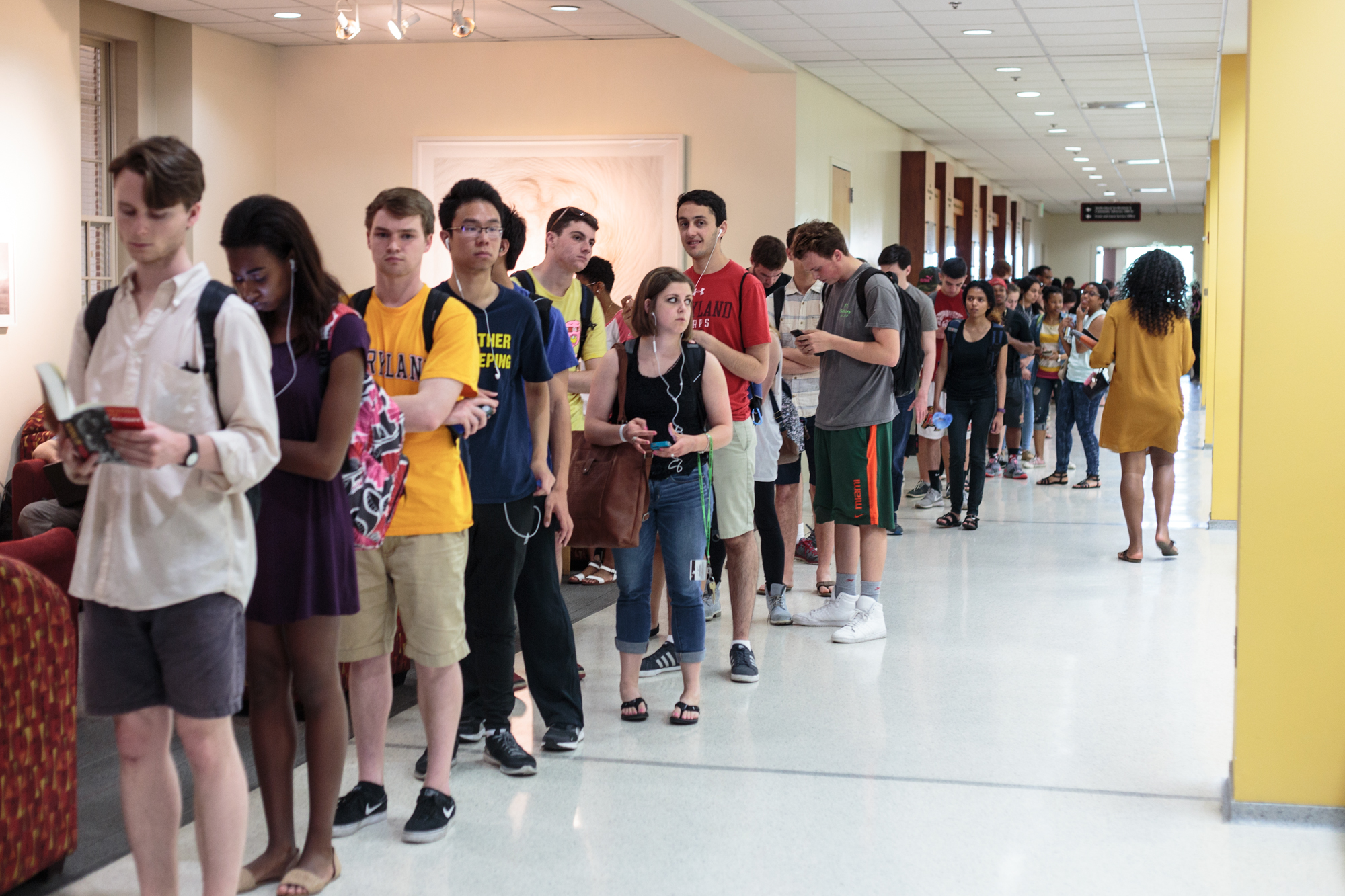Fear encourages racially biased individuals to support voter identification laws, according to a report published in the October 2016 edition of Political Psychology by Antoine Banks, a University of Maryland government and politics professor and Heather Hicks, a government and politics doctoral student .
The study used a sample size of more than 700 white participants. The sample size consisted of 20 percent Republicans, 46 percent democrats and 31 percent Independents.
Banks and Hicks used the Implicit Association Test — a test that records reaction times to photos with “good” and “bad” or “black” and “white” attributes — to identify individuals shown to have an implicit racial bias. Participants selected based on the test were placed into two groups: One was told to write what makes them calm or content, and the other was told to write about what makes them fearful. Both groups were then asked whether they support voter ID laws — laws that require some form of official identification to vote — and whether they think people who support voter ID laws do so because they want to decrease voter fraud.
The democratic participants fluctuated from 47 percent in favor of voter identification laws when calm and content to 85 percent in favor when afraid. In comparison, 100 percent of Republicans in the sample supported voter ID laws in a calm state — so that number could not differ between calm and fearful participants.
“[The] issue of racial bias influencing voters was prevalent at the time, and still is during this presidential race,” Banks said.
Fear motivated racially-biased white people to support voter identification laws at higher rates, with support of voter identification laws jumping from 76 percent while content to 92 percent when fearful, Banks said.
“The effect of implicit bias was biggest among Democrats; [fear] moved them the most,” Banks said, noting that it moved them the most because the Republicans polled were already so supportive of the law that they couldn’t increase their support as much. Democrats are typically far less supportive of voter ID laws — 63 percent compared to 95 percent of Republicans, according to a Gallup poll from August 2016.
Banks noted that despite the dramatic change caused by fear, participants weren’t “aware that their racial bias [was] taking affect.” They believed they were making their selections based on protecting vote integrity, he said.
Participants were also asked whether or not they believed those who support voter ID laws do so because they want to limit voter fraud. Most of those who answered that they do support voter ID laws also answered that they believe those who support voter ID laws want to limit voter fraud.
One observation psychologists have noticed is that thoughts in the short-term memory can influence how people react when faced with decisions.
“Your understanding of the way the world works shapes your decisions, but almost always you’re making decisions fast instead of thinking about it slowly,” said Cindy Clement, an economics professor at this university. In situations like this, “you use the information you have in your short term memory, not about what you may have thought about in the past.”
However, there is not enough evidence to prove if voter ID laws limit voter fraud, said Michael Hanmer, a government and politics professor at this university who studies voter ID laws.
Voter fraud is far easier when considering absentee ballots, Hanmer said, there aren’t the same regulations put in place for standard poll voting as there are for absentee ballots.
In locations with a recent change from a Republican legislature to a Democratic legislature, there tends to be a higher rate of voter ID laws — possibly stemming from party members’ desire to maintain support, Hanmer said. Generally, those with IDs who cannot vote are the poor, who often vote Democratic. Less than 50 percent of people with an annual income below $20,000 voted in the last presidential election, compared to 77 percent of people in households with an income of more than $75,000, according to 2012 U.S. Census data.
“It’s incredibly interesting because it speaks to how people come to form opinions about these laws,” Hanmer said. “[This] has potential implications for how citizens, groups and elected officials and candidates speak about these laws when they’re trying to promote them or stop them.”



